Uganda
Ugandan human rights activists are calling for sanctions against the authorities in their East African country after the enactment of an "anti-homosexuality law" which they say "legalises homophobia and transphobia".
President Yoweri Museveni approved the law, considered to be one of the most repressive in the world despite warnings from international partners.
Called the "Anti-Homosexuality Act 2023", the law provides for heavy penalties for people who have homosexual relations and "promote" homosexuality.
An offence of "aggravated homosexuality" is punishable by death, a penalty that has not been applied for years in Uganda.
"This is a key moment for interested parties, such as the United States and the EU, to move forward with sanctions against Ugandans involved in human rights violations", called a coalition of human rights organisations in a statement published on Monday evening.
This "dangerous and discriminatory" law criminalises "any defence of the rights of LGBTIQ+ Ugandans, punishing this legitimate work with up to 20 years' imprisonment", the organisations write. "This will destroy the fight against HIV", they add.
"Criminalising and suppressing the legitimate defence of human rights is unacceptable in a true democracy", said Clare Byarugaba of Chapter Four Uganda, one of the organisations in the coalition, in the statement.
- Compromised relationship" - "Despite our concerted efforts to prevent the passage of the anti-homosexuality bill, the president has legalised homophobia and transphobia under state sponsorship", said Frank Mugisha, director of Sexual Minorities Uganda, also a member of the coalition.
The coalition has lodged an appeal with the Ugandan Constitutional Court.
The promulgation of this law has provoked a wave of international indignation. US President Joe Biden, denouncing a "tragic attack" on human rights, said he had asked his administration to study the consequences of this "shameful" law on "all aspects of cooperation between the United States and Uganda".
The American authorities are considering "additional measures", such as sanctions or restrictions on entry to their territory for "anyone associated with human rights violations or corruption", he added.
The head of European diplomacy, Josep Borrell, denounced a law that was "contrary to human rights".
"The Ugandan government has an obligation to protect all its citizens and ensure that their fundamental rights are respected. If it fails to do so, relations with international partners will be compromised", he said.
- 2014 precedent - In 2014, donors had already reduced their aid following the passing of a law repressing homosexuality in the country.
Washington suspended funding for government programmes and imposed visa bans. EU countries such as Denmark, Sweden, Norway, and the Netherlands also froze part of their bilateral aid.
The law was eventually annulled by the Constitutional Court on the grounds of a technicality during the vote.
Supporters of the "anti-homosexuality law 2023" said on Monday that they expected Western funding to be cut.
"They are going to cut aid to Uganda", Asuman Basalirwa, a member of parliament who initiated the bill, told the press, arguing that the country should turn to new "development partners", particularly in the Arab world.
The law enjoys broad popular support and there has been little opposition in the country, which has been ruled with an iron fist since 1986 by Yoweri Museveni.
Although there have been no recent prosecutions for homosexual acts, harassment and intimidation are the daily lots of homosexuals in Uganda, where an evangelical Christianity hostile to the LGBT+ movement has developed.



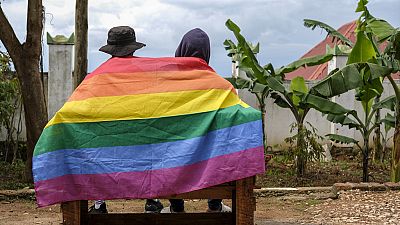

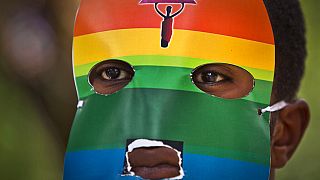

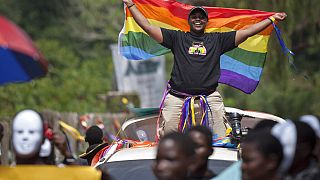
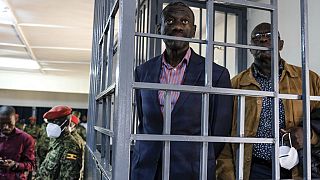

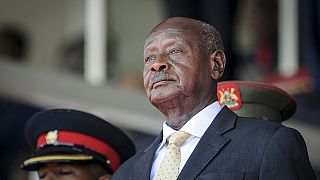
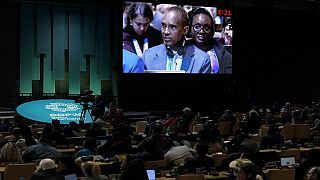
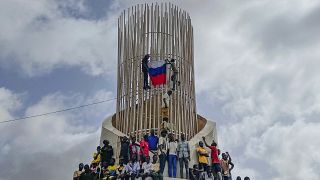
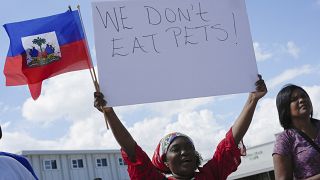
Go to video
2024: Deadliest year ever for aid workers amid global conflicts - UN says
01:40
Kenya cancels airport and energy deals with Adani group after the U.S. indicts the tycoon
Go to video
Fugitive Zambian MP Emmanuel Jay Banda arrested in Zimbabwe after three-month Manhunt
Go to video
Spain to offer residency and work permits to undocumented migrants
Go to video
Archbishop of Canterbury will end official duties in early January amid sex abuse scandal
Go to video
Congo opposition leaders call for protests against president's plan to change constitution